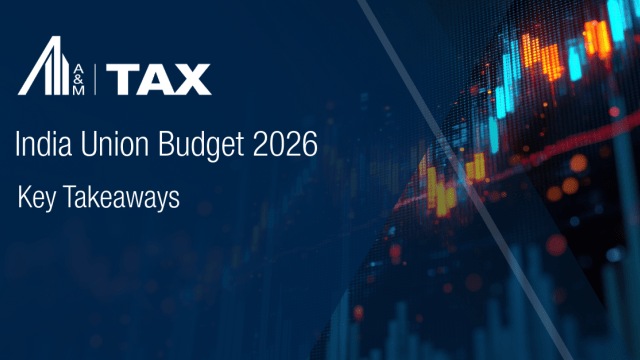Inland Revenue Ordinance Amends Tax Deductions for Leased Premises Reinstatement and Allowances for Buildings and Structures
On 27 December 2024, the Inland Revenue (Amendment) (Tax Deductions for Leased Premises Reinstatement and Allowances for Buildings and Structures) Ordinance 2024 (the Bill) [1] was gazetted to give effect to two enhancement measures. These measures were introduced to ease the tax burden on businesses, promote a business-friendly environment, and improve the competitiveness of Hong Kong's profits tax system.
- Tax Deduction for Reinstatement Costs: Tax deductions for lease reinstatement costs are now allowed despite their capital nature. This will ease the financial burden on businesses that relocate or renovate, enhancing cash flow and operational flexibility.
- Removal of Time Limit for Annual Allowances: The time limit for claiming annual allowances on commercial and industrial buildings or structures has been removed starting from the year of assessment 2024/2025. This creates a more equitable tax environment by allowing buyers of a secondhand building or structure to claim a 4 percent annual allowance on commercial and industrial buildings or structures, regardless of the usage period.
It is a good opportunity for property investors and property-rich companies to revisit their forecasts to take into account the effects of the Bill and leverage this new tax deduction to improve financial liquidity. For detailed provisions, please refer to the sections below, and feel free to contact us for further in-depth discussions.
Tax Deduction for Reinstatement Costs
Under Section 17(1)(c) of the Inland Revenue Ordinance (IRO), reinstatement costs, which are considered as capital in nature, are not deductible for profits tax.
Under the current law with the changes introduced by the Bill, tax deductions for such costs are now allowed despite their capital nature starting from the YA 2024/2025, subject to specific conditions being satisfied (see below).
- The person claiming the deduction is a lessee of the lease;
- the person claiming the deduction has an obligation (whether express or implied, and whether arising from the lease or from another agreement between the lessor and lessee of the lease) to reinstate, or pay (in full or in part) for the reinstatement of the premises under the lease to their original condition at the end of the lease term, or on early termination of the lease;
- the reinstatement costs do not relate to any provisions made under the following standards and have been actually incurred;
- Hong Kong Financial Reporting Standard 16 (Leases) as issued by the Hong Kong Institute of Certified Public Accountants and in force from time to time; or
- any other similar accounting standards;
- the amount of the reinstatement costs is reasonable in the circumstances (e.g., made in accordance with the arm’s length principle and would not significantly deviate from market rates of reinstating similar leased premises).
The Bill has also introduced the term "reinstatement costs" which, in relation to any premises under a lease, means the costs of reinstating the premises to their original condition at the end of the term of the lease or on an early termination of the lease. It also includes any amount paid or payable by a lessee of the lease to the lessor of the lease in order to discharge the lessee’s reinstatement obligation for the premises.
Further, based on additional guidance issued, there is no restrictions on the types of premises covered by the deduction for reinstatement costs.
Removal of Time Limits for Annual Allowances on commercial or industrial buildings or structures
Under the original legislation, a taxpayer who is entitled to the relevant interest in relation to the capital expenditure incurred on the construction of a commercial or industrial building or structure may claim an annual allowance of 4 percent on the expenditure or a fraction of the residue of expenditure (as the case may be). There is also a time limit for claiming commercial building allowance (“CBA”) and industrial building allowance (“IBA”). In the scenario where an old building is sold after being in use for 25 years or 50 years, the buyer would not be entitled to any CBA / IBA. However, the seller will still be subject to a balancing adjustment even if the building is sold after the stipulated time limit.
A time limit for claiming these allowances, as a result, created disparities, potentially deterring purchases of old or second-hand commercial and industrial buildings or structures.
In order to foster a business-friendly environment, the Bill amended the IRO to remove the time limits for claiming CBA and IBA, effective from the YA 2024/25, to address this disparity.
The following changes have been introduced by the Bill:
- if a commercial or industrial building or structure (with an unexpired usage period) is acquired and used by the buyer in the basis period for a YA before the YA 2024/25, the buyer is entitled to an annual allowance which is calculated in the same manner in accordance with the existing provisions of the IRO
- if—
- a taxpayer acquired an industrial building or structure before the commencement of the basis period for the YA 2024/25 but was not granted any annual allowance because the usage period had expired at the time of acquiring the building or structure; or
- a commercial or industrial building or structure (whether the usage period has expired) is acquired and used by the buyer in the basis period for a YA beginning on or after 1 April 2024, an annual allowance of 4 percent on the residue of expenditure immediately after the sale will be granted to the buyer starting from the YA 2024/25 onwards, until the residue of expenditure immediately after the sale has been fully claimed.
- In all cases, sellers will continue to be subject to a balancing adjustment as per existing IRO provisions.
How we can support you
Our team at A&M is dedicated to providing comprehensive support to guide you through the compliance and in-depth analysis of these provisions.
Please feel free to reach out to us if you have any questions or would like to discuss any aspects of the legislation.
[1] “Inland Revenue (Amendment) (Tax Deduction for Leased Premises Reinstatement and Allowances for Buildings and Structures) Ordinance 2024,” The Government of the Hong Kong Special Administrative Region Gazette, https://www.gld.gov.hk/egazette/english/gazette/file.php?year=2024&vol=28&no=42&extra=0&type=3&number=18





